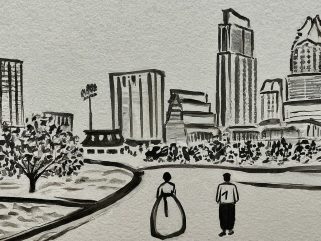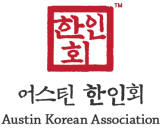Korean-Americans: Navigating Challenges and Embracing Opportunities
한국계 미국인: 새로운 터전에서의 도전과 기회

한국계 미국인 공동체는 미국 사회의 활기차고 성장하는 구성원이지만, 고유한 어려움 또한 겪고 있습니다. 이러한 어려움은 문화적 차이, 언어 장벽, 차별, 그리고 두 가지 정체성 사이에서 균형을 맞춰야 하는 압박감에서 비롯됩니다.
한국계 미국인들이 직면하는 가장 큰 장애물 중 하나는 언어 장벽입니다. 젊은 세대는 대부분 영어에 능통하지만, 나이가 많은 이민자들은 의사소통에 어려움을 겪는 경우가 많아 고립감을 느끼거나 필수 서비스 이용에 어려움을 겪을 수 있습니다. 이러한 언어 장벽은 두 문화 간의 의사소통 방식과 규범이 다를 수 있기 때문에 오해와 문화적 충돌을 야기할 수도 있습니다.
문화적 차이 또한 미국 사회 적응에 어려움을 야기할 수 있습니다. 어른 공경과 가족 중시와 같은 전통적인 한국 가치는 때때로 개인주의적이고 평등주의적인 미국 문화와 충돌할 수 있습니다. 이는 한국계 미국인들이 자신들의 유산과 새로운 환경 사이에서 균형을 찾으려고 노력하면서 내적 갈등과 소외감을 초래할 수 있습니다.
차별은 한국계 미국인들이 직면하는 또 다른 불행한 현실입니다. 노골적인 인종차별은 시간이 지나면서 감소했지만, 미묘한 차별과 고정관념은 여전히 남아 있습니다. 이는 외모에 대한 무례한 발언부터 언어 능력이나 문화적 관습에 대한 억측까지 다양하게 나타날 수 있습니다. 이러한 경험은 정신적으로 힘들 수 있으며 소외감을 느끼게 할 수 있습니다.
두 가지 정체성 사이의 균형을 유지하는 것은 많은 한국계 미국인들에게 끊임없는 고민입니다. 그들은 한국 유산을 유지하면서도 미국 문화에 동화되어야 한다는 압박감을 느낄 수 있습니다. 이는 자신의 이중 정체성을 조화시키려고 노력하면서 정체성 위기와 내적 갈등으로 이어질 수 있습니다.
이러한 어려움에도 불구하고, 한국계 미국인 공동체는 놀라운 회복력과 적응력을 보여주었습니다. 그들은 강력한 공동체를 형성하고, 성공적인 사업을 일구었으며, 다양한 분야에서 상당한 성공을 거두었습니다. 또한 많은 한국계 미국인들은 공동체를 위해 적극적으로 옹호하고 문화적 이해를 증진하는 데 앞장서고 있습니다.
한국계 미국인들은 자신들이 직면한 문제를 극복하기 위해 다양한 전략을 개발했습니다. 언어 수업과 문화 교류 프로그램은 의사소통과 문화적 격차를 해소하는 데 도움을 줍니다. 커뮤니티 단체는 동화나 차별 문제로 어려움을 겪는 사람들에게 지원과 자원을 제공합니다. 또한 많은 한국계 미국인들은 이해와 존중을 증진하기 위해 다른 사람들에게 자신의 문화와 역사를 적극적으로 알리고 있습니다.
한국계 미국인의 경험은 복잡하고 다면적입니다. 어려움이 존재하지만, 공동체의 회복력, 결단력, 적응력 또한 분명하게 드러납니다. 한국계 미국인들은 자신들의 고유한 정체성을 포용하고, 유산을 기념하며, 미국 사회에 적극적으로 참여함으로써 이중 정체성의 복잡성을 헤쳐나가는 동시에 미국 사회에 귀중한 기여를 계속하고 있습니다.
한국계 미국인들이 직면하는 어려움은 그들 공동체만의 문제는 아니지만, 그럼에도 불구하고 중요한 문제입니다. 하지만 이러한 어려움을 인지하고 해결함으로써 한국계 미국인들은 미국 사회의 풍요로운 다양성에 기여하며 계속해서 성장할 수 있습니다.
The Korean-American community is a vibrant and growing part of the American tapestry, but it is not without its unique challenges. These challenges stem from cultural differences, language barriers, discrimination, and the pressures of balancing two distinct identities.
One of the most significant hurdles faced by Korean-Americans is the language barrier. While many younger generations are fluent in English, older immigrants often struggle with communication, which can lead to isolation and difficulties accessing essential services. This language barrier can also create misunderstandings and cultural clashes, as communication styles and norms may differ between the two cultures.
Cultural differences can also pose challenges in adapting to American society. Traditional Korean values, such as respect for elders and emphasis on family, may sometimes clash with the individualistic and egalitarian nature of American culture. This can lead to internal conflicts and feelings of displacement as Korean-Americans strive to find a balance between their heritage and their new environment.
Discrimination is another unfortunate reality faced by Korean-Americans. While overt racism has decreased over time, microaggressions and stereotypes still persist. These can range from insensitive comments about appearance to assumptions about language proficiency or cultural practices. Such experiences can be emotionally draining and contribute to feelings of alienation.
Balancing two identities is a constant struggle for many Korean-Americans. They may feel pressure to assimilate into American culture while also maintaining their Korean heritage. This can lead to identity crises and internal conflicts as they try to reconcile their dual identities.
Despite these challenges, the Korean-American community has demonstrated remarkable resilience and adaptability. They have built strong communities, established successful businesses, and achieved significant success in various fields. Many Korean-Americans have also become active in advocating for their community and promoting cultural understanding.
To overcome the challenges they face, Korean-Americans have developed various strategies. Language classes and cultural exchange programs help bridge the communication and cultural gaps. Community organizations provide support and resources for those struggling with assimilation or discrimination. Many Korean-Americans also actively engage in educating others about their culture and history to foster understanding and appreciation.
The Korean-American experience is a complex and multifaceted one. While challenges exist, the community's resilience, determination, and ability to adapt are equally evident. By embracing their unique identity, celebrating their heritage, and actively participating in American society, Korean-Americans continue to make valuable contributions to the nation while navigating the complexities of their dual identities.
The challenges faced by Korean-Americans are not unique to their community, but they are nonetheless significant. However, by acknowledging and addressing these challenges, Korean-Americans can continue to thrive and contribute to the rich diversity of American society.
